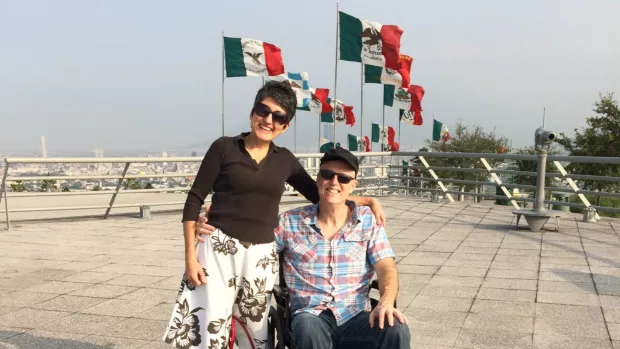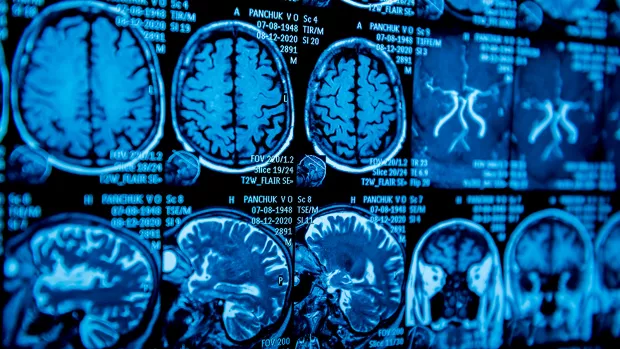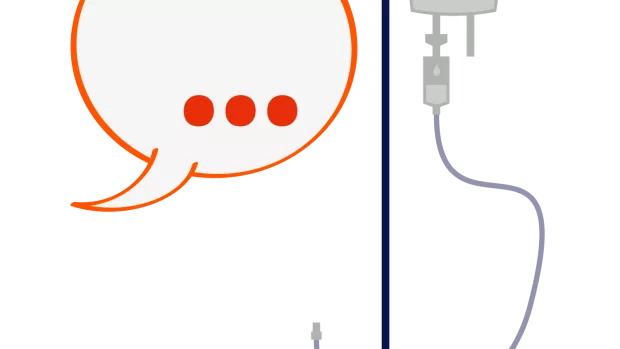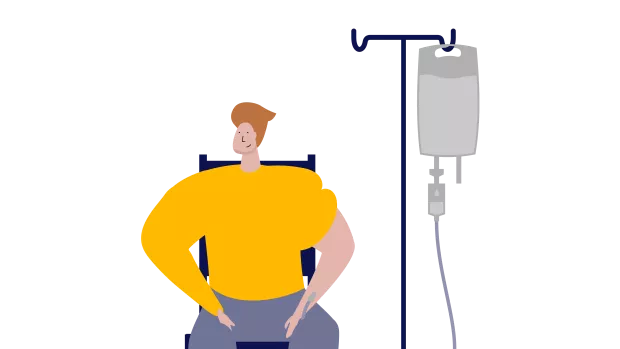
Having HSCT outside the NHS
If you've been turned down for HSCT on the NHS, you might be considering having it privately.
We strongly encourage anyone considering this to discuss their treatment options with a neurologist first. You might have been turned down for health reasons or because it's less effective for your type of MS.
Read our tips for talking about HSCT with your doctor or nurse
Read more about getting HSCT on the NHS
HSCT outside the NHS
HSCT is now available privately in centres both in the UK and abroad - these centres can have different criteria and safety standards.
Having HSCT privately in the UK
HSCT is available through private clinics in the UK. The medical eligibility criteria at these private clinics is likely to be the same as it is on the NHS. There are currently centres in London and Sheffield offering the treatment.
For private treatment in the UK, you will need to be referred by your health care professional (neurologist or GP) for treatment. The specialist team at the private clinic will then need to assess your suitability for treatment.
Having HSCT abroad
If you're considering having HSCT abroad, there are several things to consider:
1. Find out exactly what the clinic is offering, and how experienced they are
HSCT is not the only type of stem cell therapy being researched in MS. Mesenchymal stem cell therapy is also being investigated but this is still at the clinical trial stage. Make sure the clinic you are considering is offering HSCT specifically.
It’s also worth checking how experienced the clinic is at providing HSCT for people with MS. Are there examples of other people with MS benefiting from HSCT at this clinic? Do they also offer the treatment for many other conditions? This may suggest the clinic is not specialised for MS. Some centres have published research about HSCT treatment.
2. Is the clinic regulated to international standards?
In the UK any centre performing HSCT is regularly inspected and must comply with a huge number of quality and safety standards. This is because they have a licence from the Joint Accreditation Committee-ISCT and EBMT (JACIE).
These safety standards are used in a number of other European countries.
You can find a list of licensed centres on the JACIE website. The European Group for Blood and Marrow Transplantation (EBMT) recommends that any centre performing HSCT should have a JACIE licence.
If you're considering treatment abroad you should check that the centre is regulated to international standards.
3. What follow-up care is provided?
It’s important to check with the clinic what follow up care they provide. Following HSCT, you might be prescribed follow-up drugs that aren’t automatically available on the NHS. There can also be long-term complications associated with HSCT. If you’re having the treatment outside of an accredited centre you might not receive the necessary aftercare, and the NHS may not be able to cover this.
4. What's included in the cost?
The cost of HSCT abroad varies between centres. Some quotes include the cost of the flight and hotel – others do not. It’s worth checking to make sure there isn’t a nasty surprise on arrival. You should also check whether the cost includes any follow-up medications that may be required.






